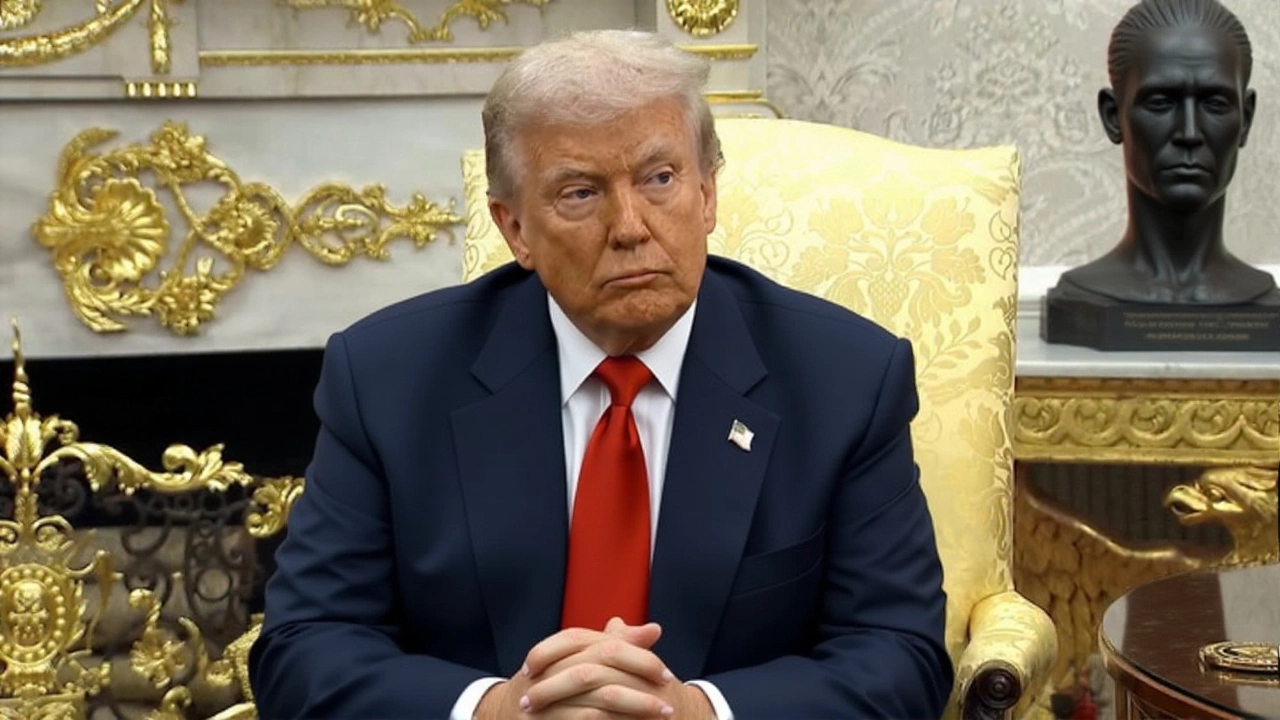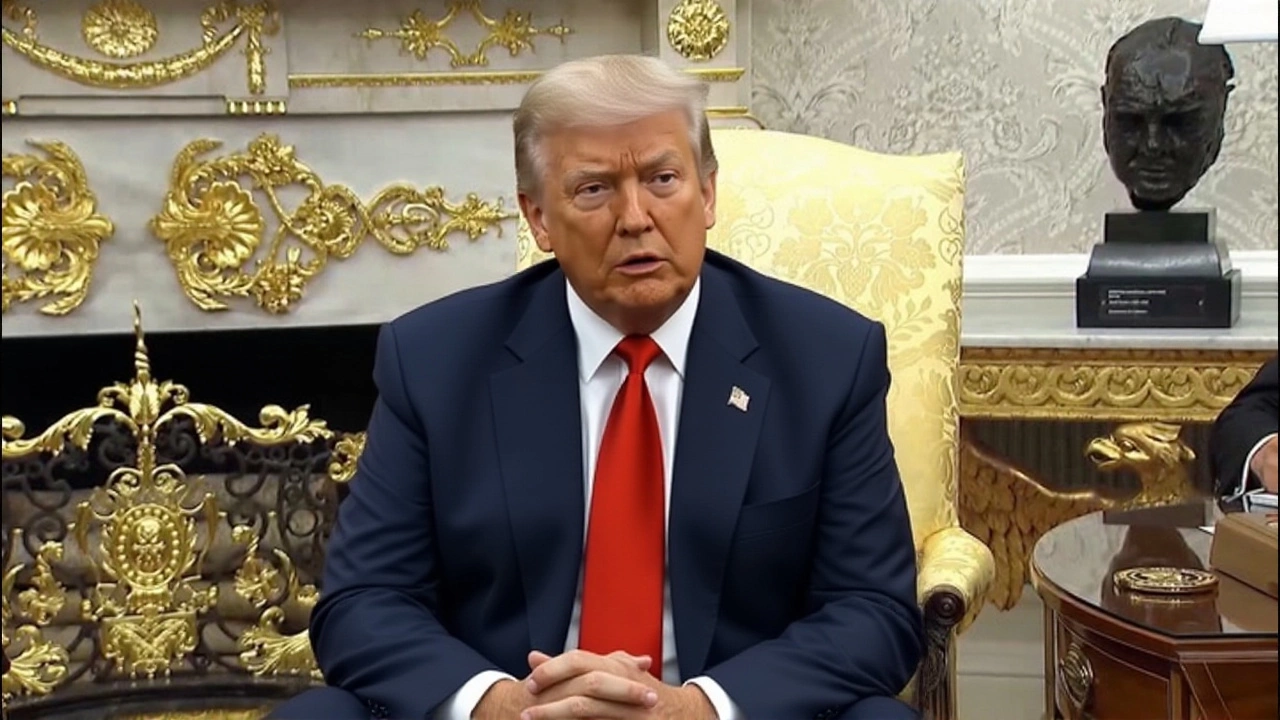When an ABC News reporter asked Saudi Crown Prince Mohammed bin Salman about the murder of Jamal Khashoggi during his June 2025 visit to Washington, D.C., it didn’t just spark a diplomatic moment—it ignited a firestorm on Fox News. Host Jesse David Watters didn’t just disagree with the question. He tore into the reporter on live TV, calling it a pointless dig at a key U.S. ally. "Does ABC think it’s serving the American people by dredging up this old, settled issue with our vital Middle Eastern ally?" he said, echoing the exact tone and language of former President Donald J. Trump, who had just hours earlier declared that the Saudi leader "knew nothing" about the 2018 killing.
The Question That Started It All
The ABC reporter’s line of questioning came during a brief media scrum outside an unannounced venue in the nation’s capital. The Crown Prince, the de facto ruler of Saudi Arabia, was in town to meet with President Joseph R. Biden Jr. and finalize a new defense pact. But the reporter didn’t ask about oil prices or missile systems. Instead, they zeroed in on the one event that still haunts the kingdom’s global image: the October 2, 2018, assassination of Jamal Khashoggi, a Washington Post columnist and U.S. resident, inside the Saudi consulate in Istanbul. The killing—dismemberment by a 15-member Saudi hit squad—was confirmed by U.S. intelligence as ordered by bin Salman himself. The Saudi government’s initial denial, followed by a claim that "rogue operatives" acted alone, never held up.
Watters’ Broadcast: Defending the Crown Prince
That same evening, from the Fox News headquarters at 1211 Avenue of the Americas in New York, Watters launched into a 7-minute segment. He didn’t name the reporter. Didn’t need to. The implication was clear: asking hard questions about Khashoggi was unpatriotic, a distraction from U.S. strategic interests. "We spend $110 billion a year on arms sales to them," Watters said, "and we’re still acting like they’re some kind of moral pariah?" He framed the murder as a "settled issue," despite the fact that Khashoggi’s body has never been recovered, no high-level official has been held accountable, and his widow, Hanan Elatr Khashoggi, is still fighting for justice in U.S. court.
Trump’s Echo Chamber
Watters’ tirade wasn’t an isolated rant. It was a direct echo of Trump’s remarks earlier that day. The former president, who blocked sanctions against Saudi Arabia in 2018 and called Khashoggi "extremely..."—a phrase redacted in reporting but consistent with his past dismissals—repeated his claim that bin Salman "knew nothing." He then pivoted to lauding a new $650 million deal for THAAD missile systems from Lockheed Martin. The message was unmistakable: business comes before blood. And on Fox News, that message got amplified into a national talking point.
The Widow’s Fight
Hanan Elatr Khashoggi, a former flight attendant and U.S. citizen, filed a wrongful death lawsuit in 2019 against the Saudi government and the Crown Prince personally. It’s still pending. The case, Khashoggi v. Kingdom of Saudi Arabia, is set for a critical hearing on July 15, 2025, Washington, D.C., before Judge Amy Berman Jackson. Her lawyers argue that the U.S. courts must not shield foreign leaders from accountability when they commit atrocities on foreign soil—with U.S. weapons, and with U.S. complicity.

Why This Still Matters
More than 1,200 articles have been published by the Washington Post on Khashoggi’s murder since 2018. That’s not just journalism. It’s a record. A refusal to let the world forget. Meanwhile, the U.S. continues to sell Saudi Arabia $1.27 billion in military equipment annually, even as the kingdom imprisons dissidents and executes activists. The Khashoggi case isn’t history. It’s a live wire. Every time a U.S. media outlet asks about it, and every time a Fox host calls that question "unhelpful," we’re choosing what kind of country we want to be.
What’s Next?
The July 15 hearing could be pivotal. If the court allows the case to proceed, it could set a precedent for holding foreign heads of state accountable in U.S. courts. Meanwhile, bin Salman’s U.S. tour continues—with more meetings, more defense deals, and more silence from Washington about the man who ordered a journalist’s murder. And on cable news, the narrative remains unchanged: ask too many questions, and you’re not a journalist—you’re a problem.
Background: The Murder That Shook the World
On October 2, 2018, Jamal Khashoggi walked into the Saudi consulate in Istanbul to obtain paperwork for his upcoming marriage. He never walked out. A 15-man team, including a forensic expert and a royal bodyguard, waited for him. They strangled him, dismembered his body, and dissolved his remains in acid. The CIA concluded with "high confidence" that bin Salman ordered the hit. The U.N. called it a "state-sponsored killing." Eight low-level Saudis were later sentenced in a closed trial. No one higher than a mid-level official faced consequences. The U.S. Congress passed resolutions condemning the murder. Trump vetoed them all.
Frequently Asked Questions
Why is Jesse Watters defending Mohammed bin Salman?
Watters’ defense reflects a long-standing Fox News narrative that prioritizes U.S.-Saudi strategic interests—especially arms sales and counterterrorism cooperation—over human rights. This aligns with Trump’s foreign policy legacy, where economic and military ties with autocratic regimes were rarely questioned. His criticism of the ABC reporter isn’t about journalistic ethics; it’s about protecting a political ally from accountability.
How did Donald Trump respond to Khashoggi’s murder in 2018?
Trump dismissed the CIA’s findings, called Khashoggi "extremely bad" in private remarks, and blocked congressional efforts to impose sanctions. He prioritized a $110 billion arms deal with Saudi Arabia, calling the kingdom a "vital partner." His 2025 remarks repeating that bin Salman "knew nothing" were consistent with his pattern of minimizing the crime to protect U.S. business interests.
Is Hanan Elatr Khashoggi’s lawsuit still active?
Yes. Filed in February 2019, the lawsuit remains pending in U.S. District Court in Washington, D.C. A key hearing is scheduled for July 15, 2025, before Judge Amy Berman Jackson. The case seeks to hold the Saudi government and Crown Prince bin Salman personally liable for Khashoggi’s murder under U.S. law, challenging the legal doctrine of sovereign immunity in cases of extrajudicial killing.
Why hasn’t the U.S. punished Saudi Arabia for this murder?
U.S. foreign policy has long prioritized oil security, military contracts, and regional alliances over human rights. Despite overwhelming evidence, no administration since 2018 has imposed meaningful sanctions on bin Salman. The Biden administration continues arms sales and military cooperation, arguing that pressuring Saudi Arabia could destabilize the region. Critics say that’s a moral failure disguised as realpolitik.
What’s the connection between Fox News and the Saudi government?
There’s no direct ownership, but Fox News has consistently echoed Saudi-aligned talking points since 2018, downplaying the Khashoggi murder and framing criticism as anti-Saudi bias. This aligns with broader media trends where corporate interests and geopolitical alliances shape narrative framing. Saudi state media has even promoted Fox segments that defend bin Salman as "accurate reporting."
Could this case change how U.S. media covers foreign leaders?
Possibly. If the Khashoggi lawsuit proceeds to trial and gains public attention, it may embolden journalists to ask harder questions during high-profile visits. But if Watters’ framing prevails—that such questions are "dredging up" old issues—it could further normalize the idea that authoritarian leaders deserve immunity from scrutiny, especially when they’re U.S. allies. The media’s role as watchdog hangs in the balance.
